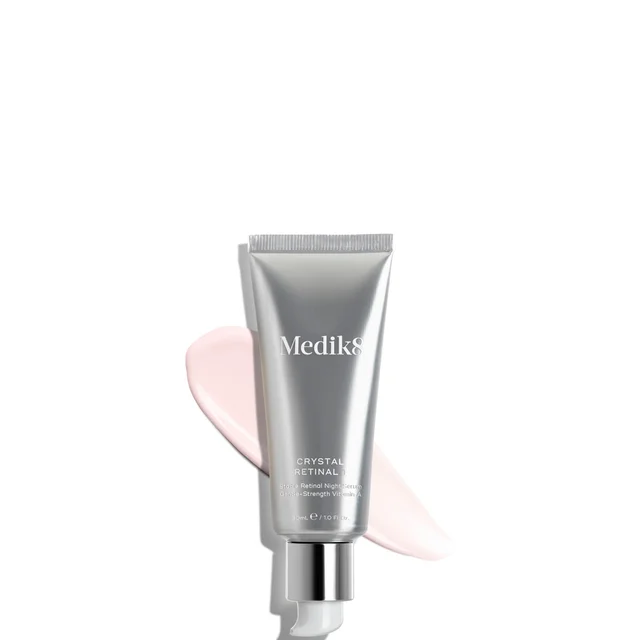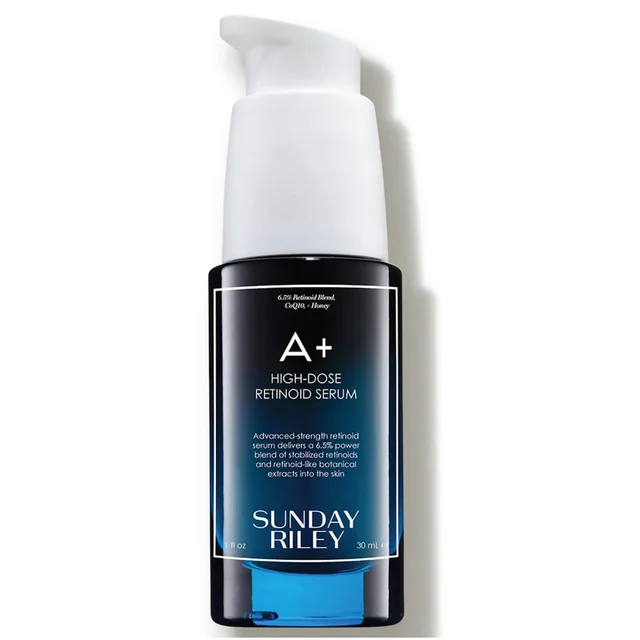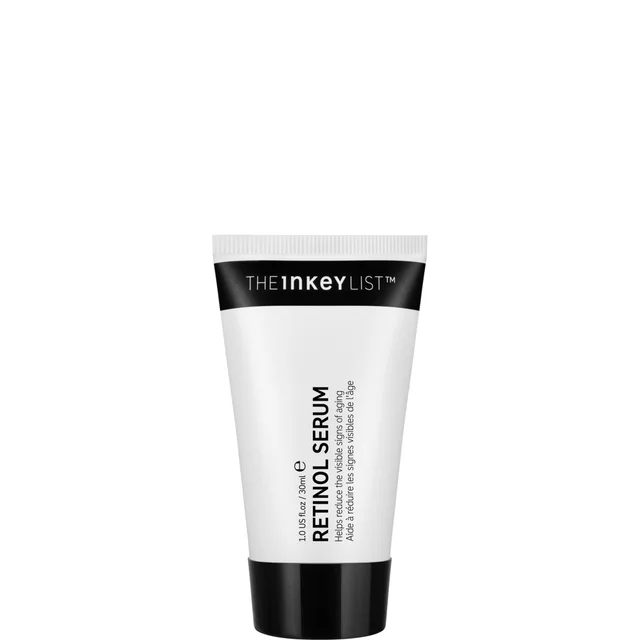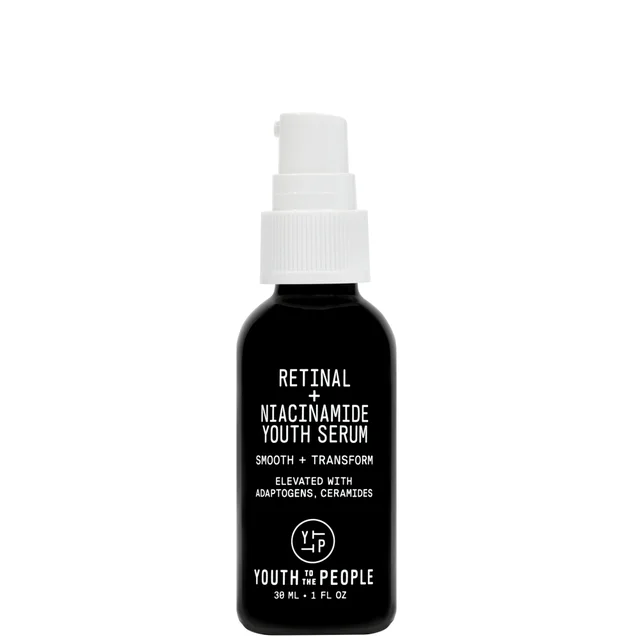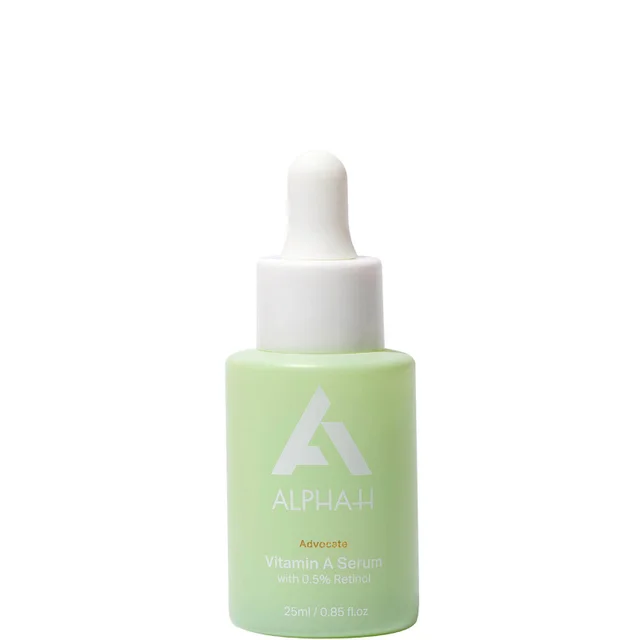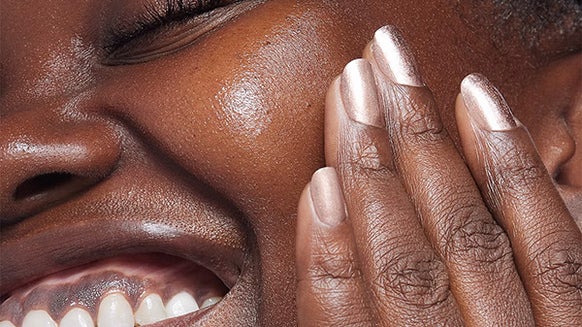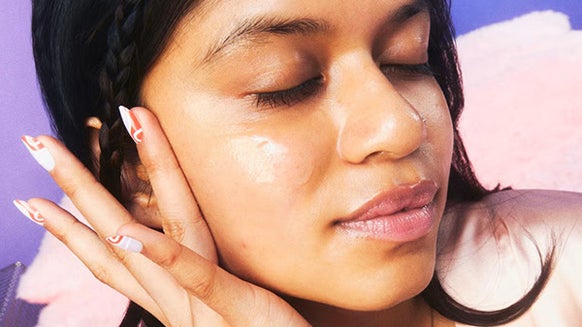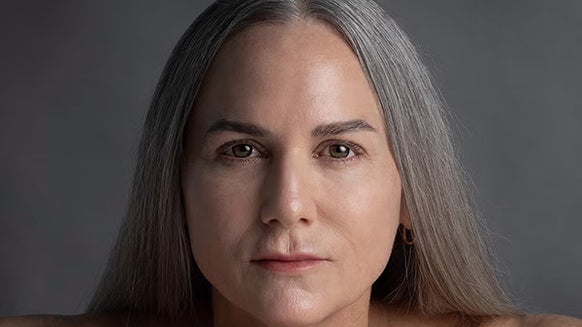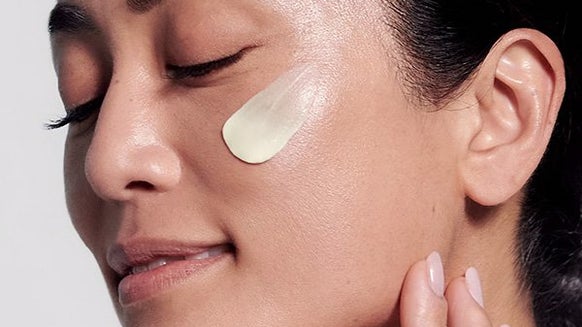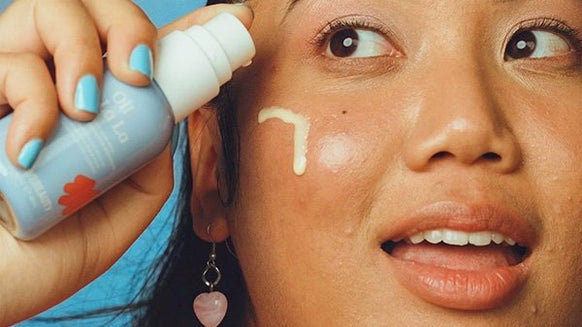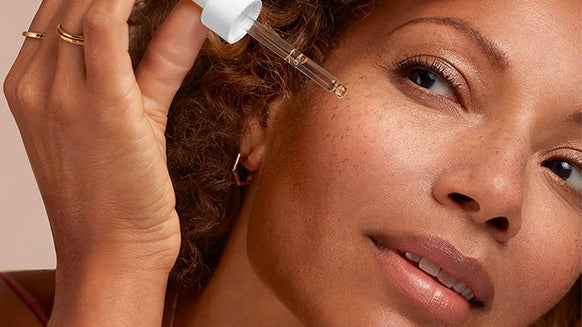THE ULTIMATE GUIDE TO RETINOL
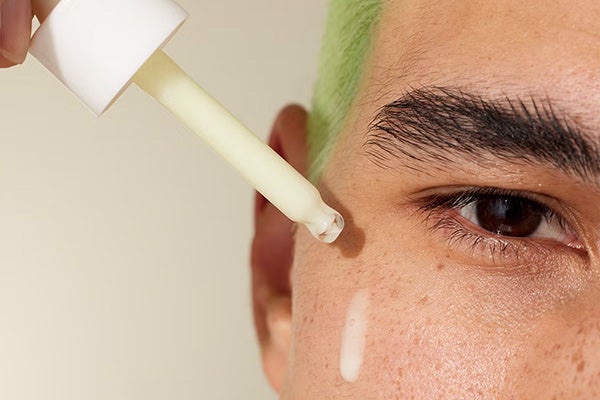
Let’s talk about retinol. The gold standard of the anti-ageing ingredients , retinol is a form of vitamin A with potent skin-reparative and premature ageing benefits. In fact, there are few things retinol doesn’t do – it strengthens, plumps, elasticises, brightens and unifies in one fell swoop – ideal as a preventative measure, as well as a potent, time-rewinding treatment.
But it’s not all sunshine and rainbows – its potency comes with a few unwanted side effects, particularly for those with sensitive skin. That’s why it’s important to do your research, find a retinol product that suits your skin type, and incorporate it gradually into your skin care routine. Don’t let this put you off – it’s a skin care staple for good reason!
In this guide we’ll deep dive into how retinol works, its benefits and how to use it for the best effects. And scroll down for Cult Concierge expert Ryan’s pick of the best retinol serums to add to your skin care arsenal.
IN THIS ARTICLE
- What Does Retinol Do And What Are Its Benefits
- Possible Side Effects Of Retinol
- Types Of Retinol
- How To Use Retinol
- The Best Retinol Products
- Retinol FAQs
WHAT DOES RETINOL DO AND WHAT ARE ITS BENEFITS
Retinol accelerates cell turnover by re-energising lazy fibroblasts, stimulating the production of collagen, hyaluronic acid and elastin – the skin-essential ‘scaffolding’ that keep skin smooth and supple. As skin cells become sluggish (sometime around the age of 25), retinol helps to maintain the natural regenerative processes we take for granted in our teens and early 20s. Which means reduced fine lines, and stronger, plumper-looking skin.
And it isn’t just an age-defying powerhouse. The benefits of retinol are far-reaching, as it’s also brilliant for blemish-prone complexions, as well as those with dulled, pigmented or pock-marked visages. By ‘bothering’ cells into action, it stimulates skin’s healing and reparative processes to ‘densify’ while reducing pigmentation, fading scars and revealing brighter skin. Like we said – there are few things it can’t do!
POSSIBLE SIDE EFFECTS OF RETINOL
The potency of retinol is what makes it so effective, but that doesn’t come without a few side effects. Some people, particularly those with sensitive skin or rosacea, won’t be able to tolerate them. Others might be fine in the long run, but might need a bit of an easing-in period, called ‘retinisation’. Trust us, it’s worth sticking it out!
When you first start using retinol, it can cause skin cells to renew themselves too quickly. This can trigger a slight ‘peeling’ effect, also known as retinol burn. But don’t panic if you notice some redness and flakiness – your skin will eventually adapt to the new cell renewal rate and the peeling will subside, usually after a month or so, so it’s worth persevering with! That said, if you experience painful stinging or aggressive redness, you should stop using the product altogether, as some people do just have a general sensitivity to vitamin A.
Fortunately, with modern technology and clever, encapsulated formulations (as well as milder strengths for those who’re tentative), it’s easier and easier to find a formulation that suits you.
Retinol also increases sun sensitivity, which is why most vitamin A products are positioned as overnight treatments (and why it’s vital to wear SPF every day when using retinol).
TYPES OF RETINOL
Retinol, retinal, retinoids…you’ll come across a range of different terms when looking for retinol-based products, so it’s no surprise if you’re feeling a bit confused by it all! Let’s break it down.
Retinoids is the umbrella term for vitamin A derivatives, so retinol and retinal are actually types of retinoids. The difference between them lies in the concentration. Top-tier, super-strength retinoids are generally only available via a prescription. Retinal (note the spelling) is just below this in terms of strength, and then there’s retinol – the most common form of retinoids found in your day-to-day skin care products.
The benefits of retinol and retinal are pretty much the same, but retinal is faster-acting, and slightly harsher than retinol as a result.
HOW TO USE RETINOL
Here are a few golden rules to help you introduce retinol into your skin care routine and get the most out of this powerhouse ingredient.
EASE INTO IT
Rushing in with a super-strength formula might feel tempting, but your skin won’t thank you for it! To minimise side effects and help your skin adjust, try starting with a low dose – like a 0.1%strength retinol. Use a pea-sized amount for your entire face, and apply it after cleansing and toning but before other serums and your moisturiser.
Incorporate retinol gradually, starting with once or twice a week. After a couple of weeks, if your skin is happy, try increasing it to every other night. You may eventually be able to use it every day, but don’t rush it, and reduce frequency if your skin needs it.
AVOID THE EYE AREA
The skin around your eyes is more delicate and sensitive. Avoid applying retinol directly to the eye area (unless you’re using an eye-specific formula), as this can cause extra irritation.
APPLY IT AT NIGHT
Because retinol increases sun sensitivity, you should only ever apply it at night. You’ll find a wealth of night creams, bedtime ‘peels’ and overnight masks laced with vitamin A, which works its unencumbered magic while you slumber.
WEAR SPF
The cell turnover process can make skin temporarily thinner, increasing photosensitivity, so the number one rule is to always, always, ALWAYS wear SPF.
AVOID RETINOL IF YOU’RE PREGNANT OR BREASTFEEDING
It is advised to avoid using any form of retinol if you are pregnant or breastfeeding.
WHEN TO START USING RETINOL
The best time to start using retinol is in your mid 20s or early 30s if you want to use it as a preventative. That said, it’s never too late to introduce retinol into your routine – it can still benefit you in your 50s, 60s and beyond!
THE BEST RETINOL PRODUCTS TO ADD TO YOUR COLLECTION
Ryan’s pick of the best retinol products features a range of serums, oils and creams for newbies and dab hands alike.
Ideal for sensitive skin, Crystal Retinal 1 Serum age-defying formula works hard to prolong youthful-looking skin and reduce blemish-causing bacteria.
Sunday Riley's A+ High-Dose Retinoid Serum is ultra-effective and delivers serious results. It’s one to try once you’re fully eased in and certain your skin can tolerate it.
Uniting retinol and squalane, The INKEY List's Retinol Serum slow-release formula minimises irritation and maximises results, reducing the appearance of fine lines and wrinkles, evening out skin tone, tackling blemishes and improving skin clarity.
Like a gentler version of the highest dose of retinol, Youth To The People's Retinal + Niacinamide Youth Serum works just as hard to brighten and refine skin. Brimming with hydrating ingredients that soothe, retinal gets to work on smoothing rough skin and blemishes without the lengthy purging period that usually follows.
Alpha-H’s Vitamin A Serum uses 0.5% retinol to rejuvenate skin, boosting collagen production and improving skin texture in the process.
RETINOL FAQS
Can I use retinol everyday?
Using retinol every day can be effective for your skin, but it depends on your skin type and how your skin reacts to it. Retinol is a potent form of vitamin A that helps with cell turnover, reducing wrinkles, blemishes and everything in between, however, for many people, especially those with sensitive skin, using retinol every day right from the start can cause dryness, irritation, redness, or peeling. Instead, we recommend easing into it by applying it 2-3 times a week and gradually increase the frequency as your skin builds tolerance.
Is retinol just vitamin C?
No, retinol and vitamin C are different skin care ingredients with different benefits for your skin. While both are popular powerhouses, they work in different ways. While vitamin C is an antioxidant that helps protect your complexion from damage caused by free radicals and is known for its ability to brighten the skin, retinol is a form of vitamin A often used in for its anti-aging and blemish-fighting properties.
Are vitamin A and retinol the same thing?
While vitamin A and retinol are related, they are not exactly the same thing. Vitamin A is a group of fat-soluble compounds that are essential for many bodily functions. It comes in different forms, with the most common being retinoids (which include retinol).

Rina is Cult Beauty’s Midweight SEO Copywriter and has always had a passion for beauty and skin care (rich moisturisers are her obsession). What started as a love for The Body Shop and their famed Born Lippy lip balms (in ‘Watermelon’ of course!), she is now more interested in finding products with proven effectiveness instead of broken promises. A loud and proud VIEVE fan, Rina owns nearly every item of the range and recommends the brand to anyone who will listen... When she’s not intently reading ingredient lists, you can find her either immersed in multiple true crime podcasts or a fantasy romance novel, with an *extra* hot cappuccino in hand.
